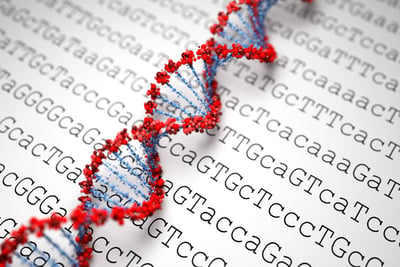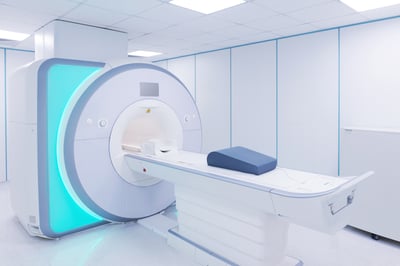FORCE's eXamining the Relevance of Articles for You (XRAY) program looks behind the headlines of cancer news to help you understand what the research means for you.
XRAY is a reliable source of hereditary cancer research-related news and information.
Learn more about the XRAY program
Keyword: BRCA1
Relevance: Medium-High


Strength of Science: Medium


Research Timeline: Post Approval


Study : Inherited mutations in metastatic breast cancer patients
Relevance: Medium-High


Strength of Science: Medium


Research Timeline: Post Approval


Most relevant for: People with metastatic breast cancer
Recent research shows that a significant portion of patients with metastatic breast cancer have harmful mutations in a gene associated with hereditary breast cancer and increased breast cancer risk. (9/26/19)
Read More
Relevance: High


Strength of Science: High


Research Timeline: Post Approval


Study : Is it safe for BRCA mutation carriers to become pregnant following breast cancer?
Relevance: High


Strength of Science: High


Research Timeline: Post Approval


Most relevant for: Women with a BRCA mutation who are considering pregnancy after breast cancer
New research shows that pregnancy after breast cancer is safe for women with BRCA mutations and their babies. (9/4/19)
Read More
Relevance: High


Strength of Science: Medium-High


Research Timeline: Post Approval


Study : MRI or mammograms for detecting breast cancer in families with unknown genetic mutations?
Relevance: High


Strength of Science: Medium-High


Research Timeline: Post Approval


Most relevant for: People with a personal or family history of cancer where no mutation has been found
MRI and mammograms are used together to detect breast cancer in high-risk women who test positive for a BRCA or other gene mutation that increases the risk for breast cancer. For women with a family history of breast cancer but no known genetic mutation, increased screening is recommended. But what method is best? A recent clinical trial in the Netherlands compared MRI and mammography for this population. (8/15/19)
Read More
Relevance: High


Strength of Science: High


Research Timeline: Human Research


Study : Results from the POLO trial: Olaparib may delay cancer progression in metastatic pancreatic cancer patients with BRCA mutations.
Relevance: High


Strength of Science: High


Research Timeline: Human Research


Most relevant for: People diagnosed with pancreatic cancer who have a BRCA mutation
Note: On 12/27/19, the FDA approved olaparib for treatment of pancreatic cancer in people with a BRCA mutation based on the results of the POLO study.
The POLO clinical trial looks at whether the PARP inhibitor olaparib improves outcomes for those with metastatic pancreatic cancer after platinum-based chemotherapy. (7/3/19)
Read More
Study : Do Vitamin B supplements alter breast cancer risk for women with BRCA mutations?
Most relevant for: High risk women with a BRCA1 or BRCA2 mutation
Vitamins are an essential part of our diet. Vitamin supplements are often used to improve general health. This study explores how vitamin B supplements may affect breast cancer risk in women with BRCA mutations. (5/17/19)
Read More
Relevance: Medium-High


Research Timeline: Post Approval


Guideline : Breast surgeons recommend genetic testing for all breast cancer patients
Relevance: Medium-High


Research Timeline: Post Approval


Most relevant for: Anyone diagnosed with breast cancer
The American Society of Breast Surgeons published statement on genetic testing for hereditary breast cancer on February 10, 2019. It includes recommendations about who should be tested. Among these is the recommendation that all breast cancer patients get genetic testing, as well as women who do not have breast cancer but fit the National Comprehensive Cancer Network (NCCN) guidelines. (3/25/19)
Read More
Relevance: High


Strength of Science: Medium-High


Research Timeline: Post Approval


Study : Gaps in information about breast cancer risk and prevention impact African American women
Relevance: High


Strength of Science: Medium-High


Research Timeline: Post Approval


Most relevant for: African American women who are at high risk for breast cancer
A study showed that African American women with increased breast cancer risk experienced greater burdens in obtaining information at each step compared to white women. Racial differences in preventive choices correlated with differences in information and provider access. (3/14/19)
Read More
Relevance: Medium-High


Strength of Science: Medium-High


Research Timeline: Post Approval


Study : Prevalence of BRCA founder mutations in Bahamian women
Relevance: Medium-High


Strength of Science: Medium-High


Research Timeline: Post Approval


Most relevant for: Bahamanian women
The Bahamas has the highest known frequency of BRCA mutations among people diagnosed with breast cancer. This study reviewed whether population-based BRCA testing (testing everyone regardless of family or personal history of cancer) would be an effective approach for finding mutation carriers in the Bahamas. (3/4/19)
Read More
Relevance: Medium-High


Study : FORCE online survey: What breast cancer information do young women want and where do they look for it?
Relevance: Medium-High


Most relevant for: Young women and the health care providers who treat them
FORCE developed the CDC-funded Examining Relevance of Articles to Young Survivors or XRAYS program to help young breast cancer survivors and those at high-risk better understand media coverage about new breast cancer research. To ensure that the program would be responsive to users’ needs, FORCE designed a web-based survey to assess where young women look for information about breast cancer and to learn their unmet information needs. The results of this survey were published in the journal Health Communications. (1/18/19)
Read More.jpeg)
Relevance: Medium-High


Strength of Science: Medium-High


Study : Breast cancer risk increases modestly after childbirth
Relevance: Medium-High


Strength of Science: Medium-High


Most relevant for: Women in their childbearing years
Does having children alter the risk of breast cancer? Women who give birth have a lower lifetime risk of breast cancer. However, newer data suggests that breast cancer risk increases immediately after childbirth. A study published in December 2018 examines data from the Premenopausal Breast Cancer Collective Group seeking to clarify this issue. (12/28/18)
Read More